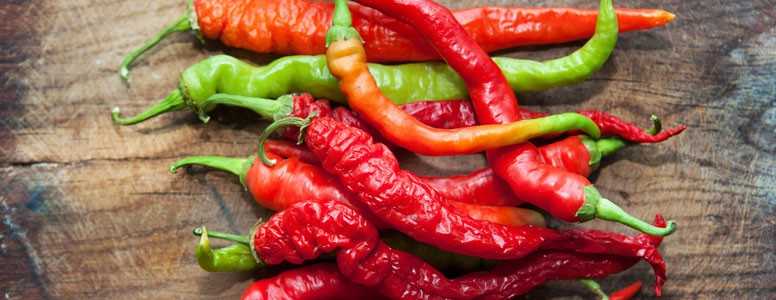Chilli peppers and marijuana could reduce gut inflammation, scientists say, and provide a possible treatment option for type 1 diabetes.
US researchers found that while chilli peppers and marijuana have different effects on the brain, they have a similar impact on the gut.
It is a compound in chilli peppers called capsaicin which researchers are interested in. Capsaicin targets a gut receptor that produces a separate compound called anandamide, which is chemically similar to the compounds in marijuana.
The study team at the UConn Health School of Medicine in Farmingto, University of Connecticut tested the effects of capsaicin on mouse models of type 1 diabetes, and found that it reversed type 1 diabetes in the rodents.
Capsaicin was shown to bind to a receptor called TRPV1 in the gastrointestinal tract, which led to anandamide production. The anandamide then interacted with the receptor to proliferate and help reduce inflammation.
A primary effect of anandamide was the summoning of anti-inflammatory immune cells. As anandamide levels increased, so did the activity of anti-inflammatory cells known as macrophages.
Because anandamide is chemically comparable to marijuana compounds, it also binds to cannabinoid receptors in the brain. This means that edible marijuana could reduce gut inflammation and help to treat type 1 diabetes and colitis (inflammation of the colon).
The findings shed further light on the relationship between the brain, immune system and the gut, but currently the researchers do not understand the precise mechanisms in which anandamide reduces gut inflammation.
“Our study unveils a role for the endocannabinoid system in maintaining immune homeostasis in the gut/pancreas and reveals a conversation between the nervous and immune systems using distinct receptors,” said study co-author Pramod Srivastava.
“This allows you to imagine ways the immune system and the brain might talk to each other. They share a common language.”
The study has been published in the Proceedings of the National Academy of Sciences journal.
What's new on the forum? ⭐️
Get our free newsletters
Stay up to date with the latest news, research and breakthroughs.






